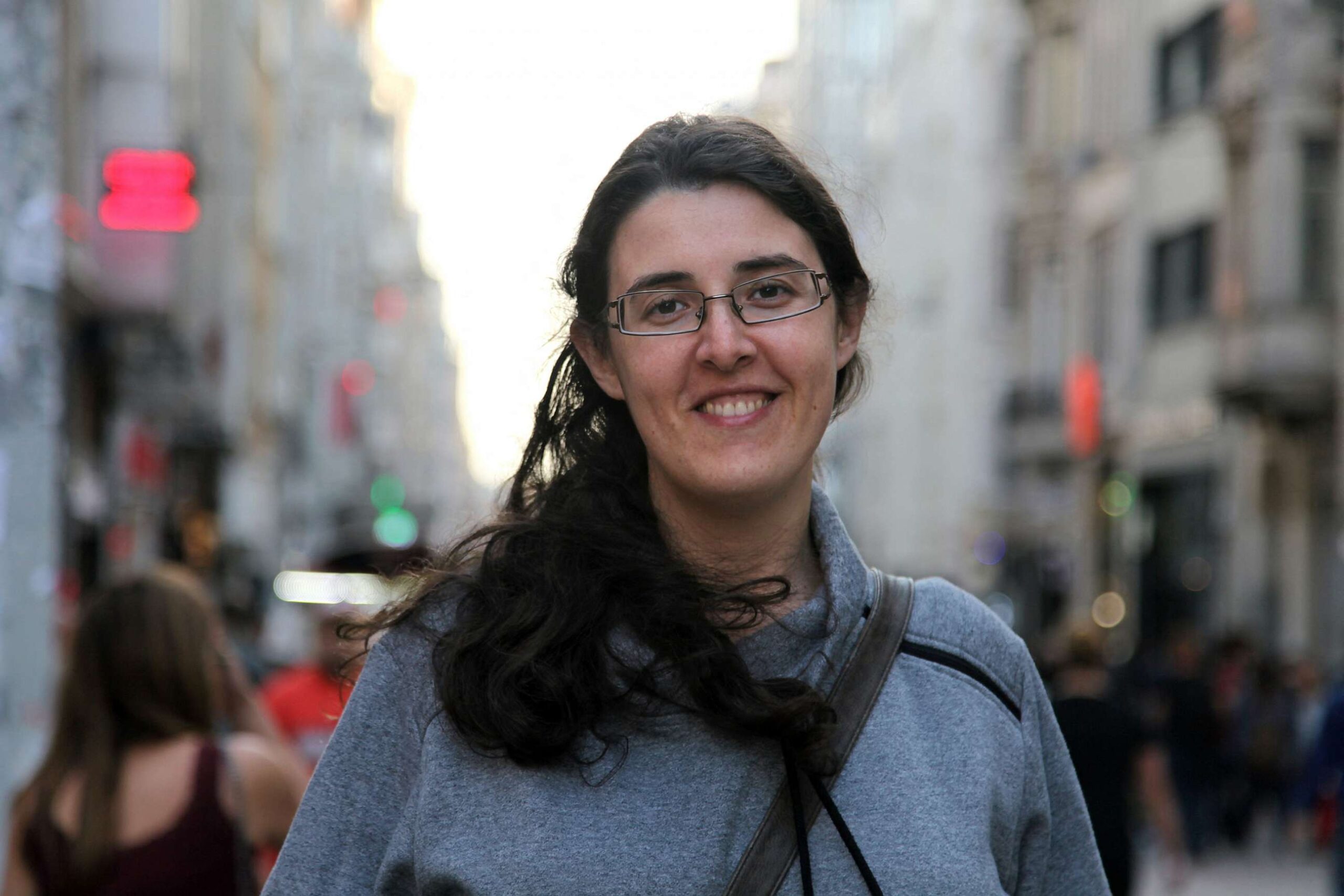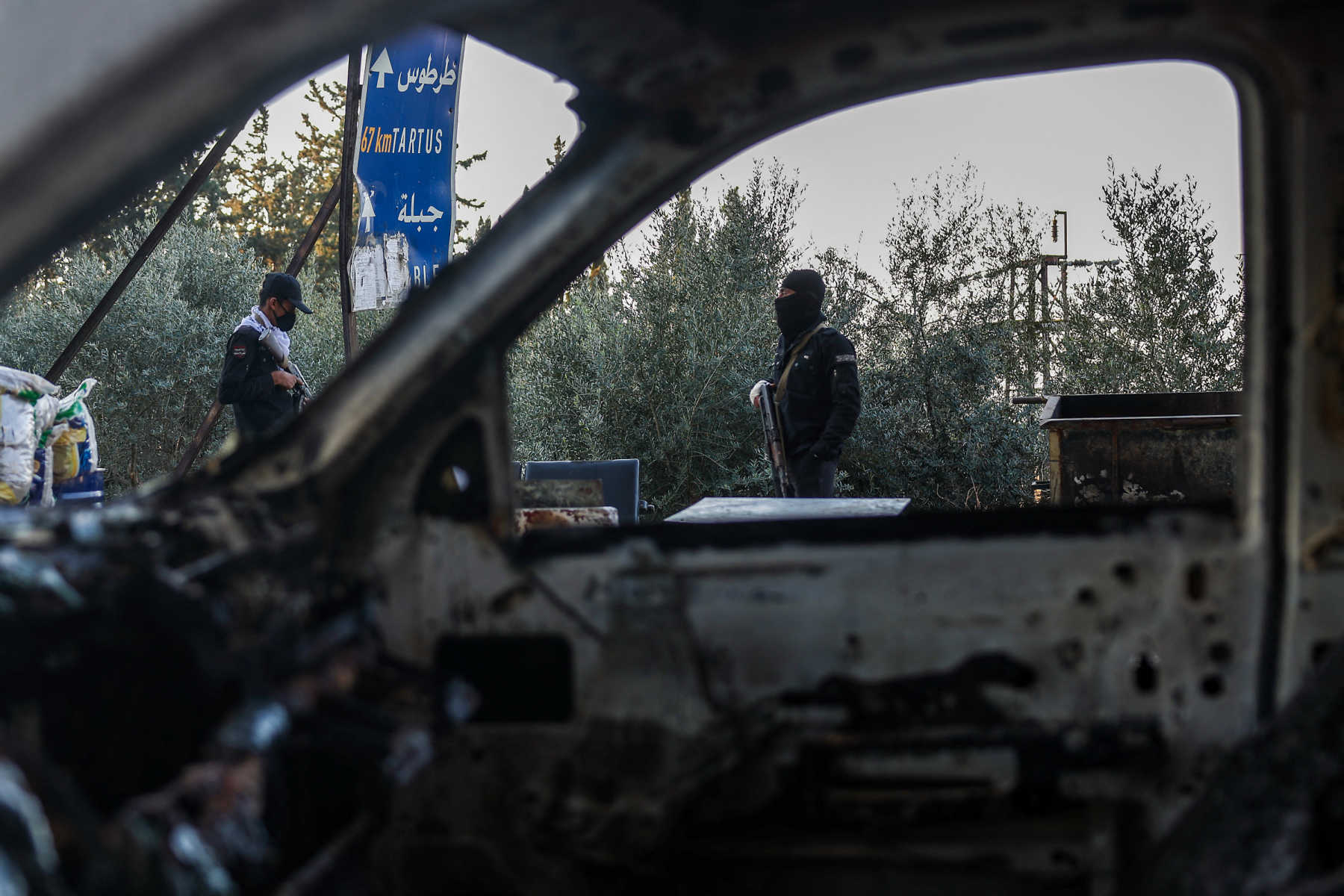Wajeeh Lion is a sitting member on the Board of Directors for the Kansas City Anti-Violence Project, a nonprofit that provides dedicated services to LGBTQ youth and adults throughout Missouri and Kansas.

Wajeeh Lion
Wajeeh Lion, born Abdulrahman Alkhiary, is a sitting member on the Board of Directors for the Kansas City Anti-Violence Project, a nonprofit that provides dedicated services to LGBTQ youth and adults throughout Missouri and Kansas.
In 2016, I was 23 years old and a recent graduate of Kansas State University. We were living in Manhattan, Kansas, when my Saudi parents, both observant Muslims, asked to have a meeting with me. I got nervous and couldn't focus on my work that day, worrying what my parents wanted to talk about. When we sat down together at home, my mom asked, "Is there something you're not telling us?"
Then my father asked me, "Are you happy with your relationship with God?"
Yes, I said, I am satisfied.
My father left the room. My mother looked me in the eye and asked, "Are you gay?"
Time stood still. I remember staring at the wall long and hard, deciding whether or not to tell the truth, whether I should face my reality: Am I ready to take this path or not? Do I have what it takes to deal with my family's reaction? That moment felt like a lifetime of agony.
I looked at my mom and asked, "What if I was?"
The first thing out of her mouth was that she would take me back to Saudi Arabia. "Why?" I asked. "So I can get stoned to death?"
My parents forced me to hand over my cellphone and delete my Facebook account, hoping I would lose all of my contacts. They confiscated my car. I couldn't hang out with my friends. My parents insisted I should find God, and they tried forcing me to go to the mosque despite my beliefs.
The sheer level of intimidation threatened my safety, freedom and my right to be who I am. I was under direct threat of being kidnapped by the Saudi government, and I had a good idea about the consequences of my actions. In fact, I received several phone calls from an agent who claimed to be a Saudi government affiliate, informing me that the Saudi government wanted me dead.
LGBTQ children in particular face increased chances of sexual assault in Saudi Arabia. They are more likely to stay quiet about it because they don't feel safe going to their parents.
- Wajeeh Lion
Fearing what would happen, I texted some friends—first, the head of LGBTQ services at Kansas State University, where I was a student. Then I contacted my lawyer, who made a plan with the former program director at the Kansas City Anti-Violence Project to find a safe place for me to live. Through the nonprofit, where I'm now a sitting board member, I found a safe house and a new family. In 2018, I was granted asylum in the United States, two years after the family meltdown.
This is not just my story; this is the story about intolerance faced by the entire LGBTQ community in Saudi Arabia, where homosexuality is illegal. Being one of the few, if not only, openly gay men from Saudi Arabia, I have a responsibility to share our stories, and to tell the world about our struggle for human rights. The kingdom claims it is trying to modernize, while it is still maintaining laws that are stuck in the past and denying the existence and humanity of its LGBTQ community.
Anyone in Saudi Arabia faces pressure, coercion and even execution for being gay. Children are forced to attend Islamic schools, memorize the Quran and act in traditionally assigned gender roles, reinforcing gender violence. Many are forced to marry at a young age and then expected to have their own children, well before they are ready to make adult decisions, let alone say no.
LGBTQ children in particular face increased chances of sexual assault in Saudi Arabia. They are more likely to stay quiet about it because they don't feel safe going to their parents. Sexual offenders are not held accountable because parents just assume their kids are not experiencing violence, or they simply do not want to address the problem at hand. It is pervasive for Saudi parents to assume their child is heterosexual and therefore considered "healthy" or "normal."
Many people in Saudi Arabia have reached out to me on social media for help because they are under direct threat from their families, the Saudi government, or both.
- Wajeeh Lion
One recent case in particular exposes how the human rights of LGBTQ Saudis are systematically denied. Suhail Yousef al-Yahya, also known as Suhail al-Jameel, was first arrested in 2018, when he was only 23, on charges of "parental disobedience," a draconian Saudi law allowing parents to declare children disobedient and hold them in contempt. His parents charged him because they found out he was gay. He was later released on good behavior after memorizing the Quran, and went on to study at California State University Fullerton. But Suhail was later lured back to Saudi Arabia by his family and the Saudi government, under the pretense that his mother was dying.
He had previously posted photos of himself on his Twitter account wearing swimming shorts and posing with his cat. When he returned to Saudi Arabia in October 2019, he was arrested again. This time, it was on charges of violating "public taste" and appearing like a woman, and committing electronic crimes supposedly related to "cyber security"—all because of the photo in his bathing suit.
Suhail has been in Dhahban Prison outside Jeddah ever since. In October 2019, he was sentenced to three additional years in prison and torture through a punishment of 800 lashes. Saudi authorities have blocked access to him and other prisoners like him. Although Suhail's sentence is set to end in October this year, the Saudi government has yet to confirm a release date.
Suhail is now one of my clients. In June, to mark Pride Month, U.S. Secretary of State Antony Blinken reaffirmed that the Biden administration "has committed to increasing U.S. engagement on lesbian, gay, bisexual, transgender, queer, and intersex (LGBTQI+) human rights issues abroad." It was a welcome statement, but we have yet to see it in action regarding Saudi Arabia. Suhail and others deserve the support of a U.S. government that says it is concerned with protecting their rights. Will the State Department address his case publicly and demand his immediate release?
Now that I am on this path, many are following and joining the Saudi LGBTQ community. We are currently using Twitter Spaces to foster connections between LGBTQ individuals and allies located in Saudi Arabia and in the West. The Twitter platform allows users to communicate via anonymous profiles, thus securing their safety.
Our online presence forces a real and dynamic conversation about LGBTQ rights in Saudi Arabia, whereas in the past it has been one-sided. We address topics including sexual education, consent, gender identity and sexual orientation. Hosting live chats in Twitter Spaces exposes many people who have never interacted with the LGBTQ community to us, while keeping us safe from attacks. In this way, we have gained allies and support where there was none.
More LGBTQ persons are trying to escape Saudi Arabia and seek asylum, or have already escaped and become exiles. The number of successful asylum-seekers is on the rise, as Saudi Arabia clings to Sharia law and the Quran as a governing constitution, while simultaneously claiming to be modernizing. The imprisonment of Loujain Alhathloul, an advocate for women's driving rights, is a prime example of the rift between Saudi Arabia's image and its reality.
Many people in Saudi Arabia have reached out to me on social media for help because they are under direct threat from their families, the Saudi government, or both. We take their concerns and emergency requests to the State Department, in hopes of a rescue. We are in dire need of more action to support the immediate needs of LGBTQ persons living in Saudi Arabia.
![]()

















![Security forces loyal to the interim Syrian government stand guard at a checkpoint previously held by supporters of deposed president Bashar al-Assad, in the town of Hmeimim, in the coastal province of Latakia, on March 11, 2025. Syria's new authorities announced on March 10, the end of an operation against loyalists of deposed president Bashar al-Assad, after a war monitor reported more than 1,000 civilians killed in the worst violence since his overthrow. The Syrian Observatory for Human Rights said the overwhelming majority of the 1,068 civilians killed since March 6, were members of the Alawite minority who were executed by the security forces or allied groups. (Photo by OMAR HAJ KADOUR / AFP) / “The erroneous mention[s] appearing in the metadata of this photo by OMAR HAJ KADOUR has been modified in AFP systems in the following manner: [Hmeimim] instead of [Ayn Shiqaq]. Please immediately remove the erroneous mention[s] from all your online services and delete it (them) from your servers. If you have been authorized by AFP to distribute it (them) to third parties, please ensure that the same actions are carried out by them. Failure to promptly comply with these instructions will entail liability on your part for any continued or post notification usage. Therefore we thank you very much for all your attention and prompt action. We are sorry for the inconvenience this notification may cause and remain at your disposal for any further information you may require.”](https://dawnmena.org/wp-content/uploads/2025/04/syria-22039885951-350x250.jpg)











![Security forces loyal to the interim Syrian government stand guard at a checkpoint previously held by supporters of deposed president Bashar al-Assad, in the town of Hmeimim, in the coastal province of Latakia, on March 11, 2025. Syria's new authorities announced on March 10, the end of an operation against loyalists of deposed president Bashar al-Assad, after a war monitor reported more than 1,000 civilians killed in the worst violence since his overthrow. The Syrian Observatory for Human Rights said the overwhelming majority of the 1,068 civilians killed since March 6, were members of the Alawite minority who were executed by the security forces or allied groups. (Photo by OMAR HAJ KADOUR / AFP) / “The erroneous mention[s] appearing in the metadata of this photo by OMAR HAJ KADOUR has been modified in AFP systems in the following manner: [Hmeimim] instead of [Ayn Shiqaq]. Please immediately remove the erroneous mention[s] from all your online services and delete it (them) from your servers. If you have been authorized by AFP to distribute it (them) to third parties, please ensure that the same actions are carried out by them. Failure to promptly comply with these instructions will entail liability on your part for any continued or post notification usage. Therefore we thank you very much for all your attention and prompt action. We are sorry for the inconvenience this notification may cause and remain at your disposal for any further information you may require.”](https://dawnmena.org/wp-content/uploads/2025/04/syria-22039885951-360x180.jpg)







